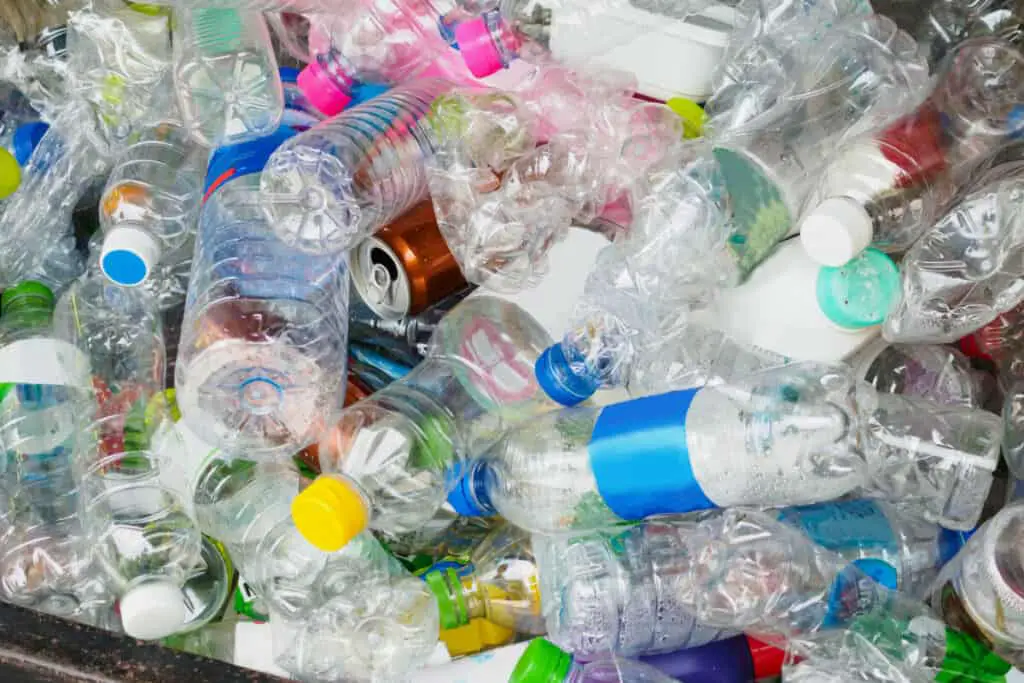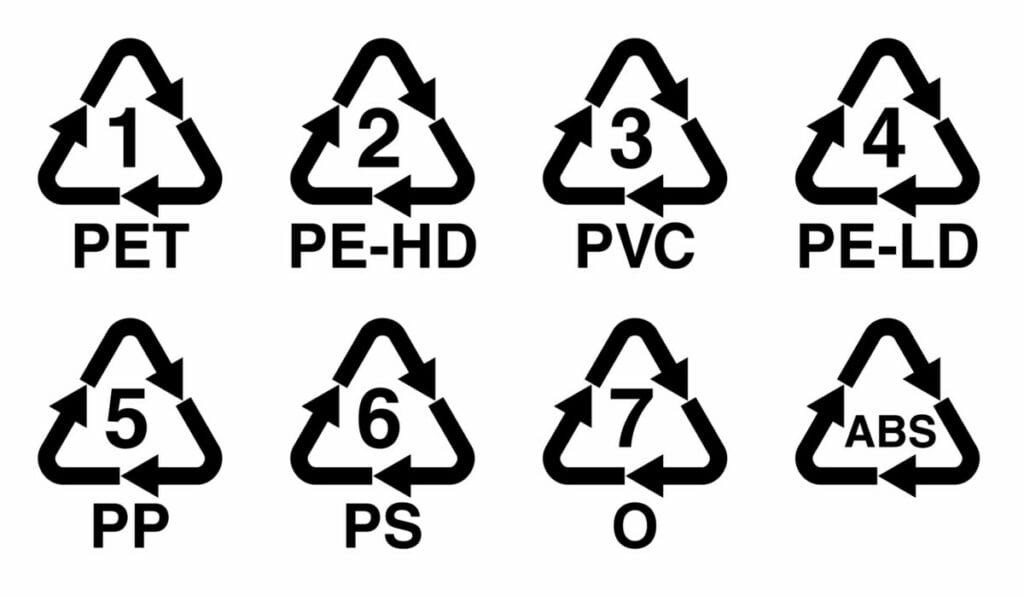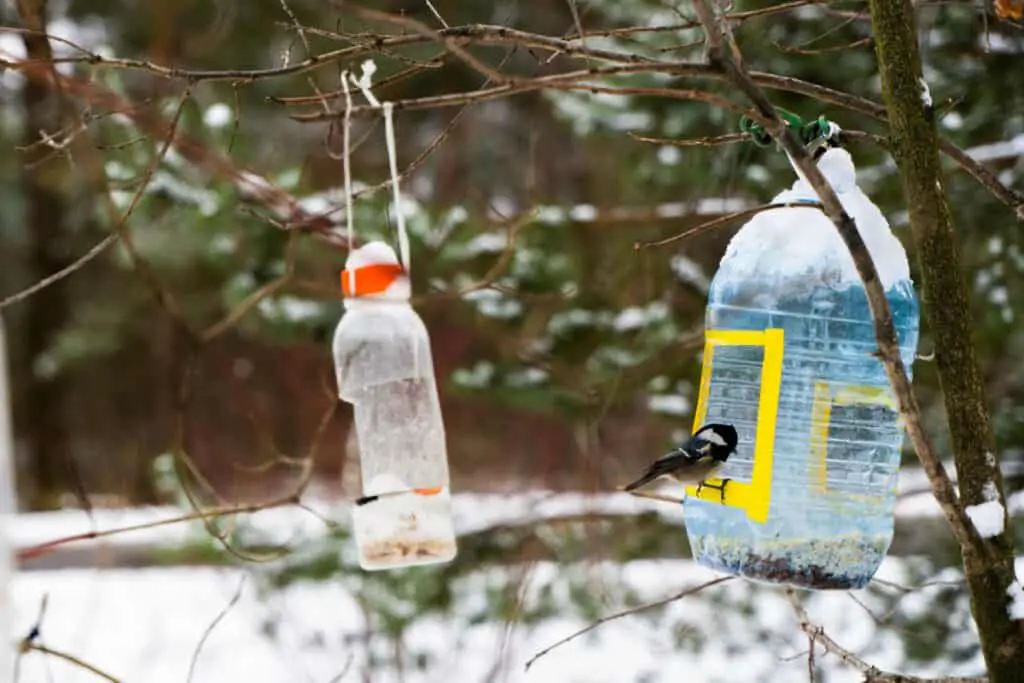
Raise your hand if you’ve used a plastic bottle today. There’s a good chance that you did considering that according to Reuters almost a million plastic bottles are sold every minute. With all of these bottles floating around you might be wondering, just how do you recycle plastic bottles?
Plastic bottles should be recycled through a recycling plant. Most types of plastics including the ones commonly found in water bottles are easy to recycle. Plastic bottles can also be repurposed for use around a home or yards as containers or as part of creative projects.
While there seems to be an almost endless supply of plastic, there is also an almost limitless number of ways to recycle it. Read on for a brief overview of some of these ways.

What plastic bottles can be recycled
One of the first things that you should check is whether your plastic bottle can be recycled at all. There are 7 different categories of plastics, all of which need to be processed in different ways. In the chart below we’ll list the most common types of plastics found in plastic bottles and some common household items you might find them in.
| Type of Plastic | Where it can be found |
| 1 PET | Water, soda, ketchup, mouthwash bottles, and some containers like peanut butter jars or oil and dressing containers |
| 2 PE-HD | Milk jugs, juice containers, bleach, detergent, and other household cleaner containers, shampoo bottles |
| 5 PP | Syrup and medicine bottles, bottle caps |
| 7 O | Large (3 or 5) gallon water bottles |
The important thing for you to do is to check your plastics symbol before you decide to recycle it. This symbol can usually be found on the bottom of a bottle or somewhere on the label. Once you have determined what type of plastics you have on hand you’ll be able to determine how you’ll be able to recycle them.
How to recycle plastic bottles
The most important factor in recycling plastic bottles is the type of plastic. Just like how the different types of plastic have different properties, for example, some are flexible while others are stiff and hard, the ways that plastics are recycled differ based on their properties.
Some basic guidelines for recycling all types of plastic are first to make sure that they are clean when they are left in the recycling bin. Plastics that still have food or chemicals covering them are unable to be processed by recycling plants, and the grime can spread to other plastics and make the load unrecyclable.
Do not bag up plastic bottles in a plastic sack. Bags are recycled the same way as bottles and must be removed manually by workers slowing the recycling process. The bag may even be tossed in the trash with all of its contents still inside. With these guidelines in mind here are some more directions about each specific type of plastic found in bottles.
Type 1 PET (PETE)
Type 1 plastics are cheap, flexible plastics that are easy to recycle. Despite being easy to handle and recycle, the EPA estimates that only about 30 percent (29.3) out of all these types of bottles generated are recycled. It is almost a guarantee that your curbside recycling pickup will accept this type as long as they follow the guidelines above.
The biggest thing to check with your local agency is what they want to be done with the bottle caps. Since the bottle caps are made of a different type of plastic they may not want you to recycle the bottles with the caps attached. Most agencies post directions for how they handle this type of recycling situation online.
Type 2 PE-HD
Type 2 plastics are very similar to Type 1s. They are also easy to recycle as long as they are cleaned thoroughly beforehand. Type 1 and 2 plastics are the most commonly accepted plastics by recycling agencies. Check your local agency for specific details on the sizes and shapes of bottles they accept. Not all type 2 bottles are universally accepted.
Type 5 PP
This is a rarer type of plastic to find in plastic bottles. Generally where it is found recycling agencies are happy to accept the cleaned plastic. The biggest hiccup with this type is bottle caps. Check with your local agency on how they handle bottle caps. Loose bottle caps generally are safer thrown in the trash than recycled, because most recycling machines can’t process them.
Type 7 O
Type 7 plastics are difficult to recycle and it is unlikely that curbside recycling will accept them. If you do have these plastics and want to keep them out of a landfill your best option is to find a company near you that specializes in processing them.
Reusing plastic bottles around your home
Your neighborhood recycling agency doesn’t have to be the one that determines which plastic bottles are recycled. You can always reuse plastic bottles around your home as containers for leftover food or as part of a DIY art project. An easy way to reuse plastic bottles is as part of simple science experiments for you or your kids. Projects like these include making a baking soda volcano or using the bottle to make a rocket. Here is a list of easy experiments that require plastic bottles or bottle caps.

Reusing plastic bottles around your yard
Another option to reuse old plastic bottles is to use them in your yard or garden. Plastic bottles can be used as containers for plants or used to water those plants. Growing up my mom cut 2-liter bottles in half and used them to cover young plants in the spring and keep them safe from frost. Cut holes in a plastic bottle and connect a hose to it and you have an easy mobile sprinkler head.
Plastic bottles are a great base for a bird-based project. Cut some openings on the sides, attach some simple perches, and fill it with seeds and you have a bird feeder that just needs to be hung outside. A larger bottle could even be shaped into an entire birdhouse.
Related Topics:
If you like the article above, here are some other similar articles you should check out!
